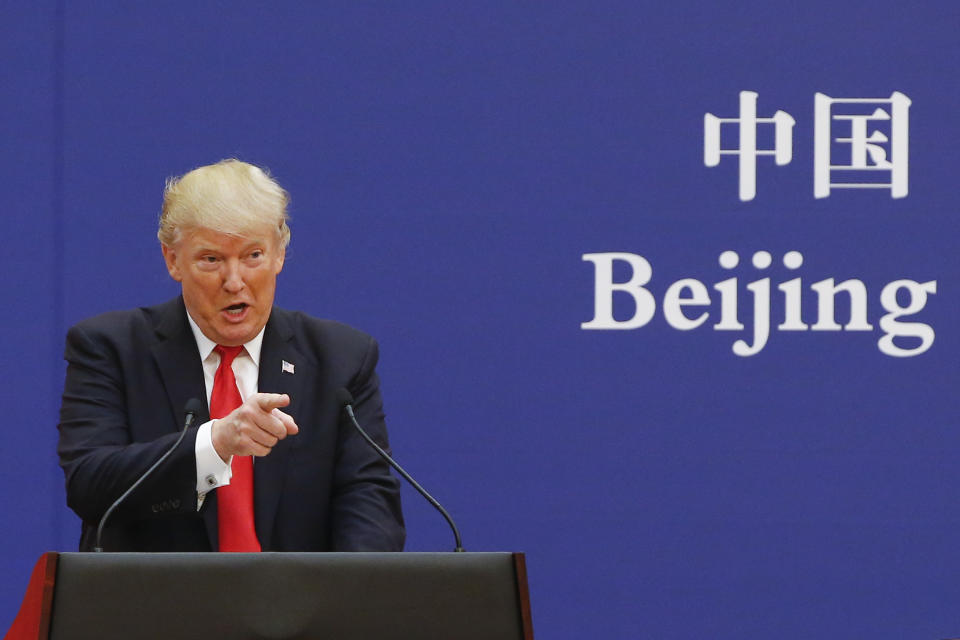Here are the big stocks with the most exposure to China
A new research note from Goldman Sachs is warning investors to beware of IT stocks and Wynn Resorts during the U.S.-China trade war. Meanwhile, they recommend tilting exposure toward telcos and utilities.
Noting that S&P 500 companies in aggregate derived 30% of revenues from international sales in 2017, analysts warned that increased trade tensions would hit stocks in the Information Technology sector the hardest given their Greater China exposure.

‘Costly alterations to their supply chains’
While identifying companies with the most exposure to Greater China in terms of assets and revenue, analysts found that companies with more than 10% of explicit asset exposure to Greater China “may need to make costly alterations to their supply chains.”
Two of the top 5 are notably hotel chains — Wynn Resorts (WYNN) and MGM Resorts (MGM) have more than 35% exposure to Greater China. Others are big tech names such as Apple (AAPL) at 30%, Intel (INTC) at 10%, Qualcomm (QCOM), Micron (MU), Broadcom (AVGO), and NVIDIA (NVDA).
“Top-line growth for these firms will likely come under pressure if China imposes retaliatory tariffs. Such tariffs would drive up the price paid by consumers in Greater China, defined as China, its Special Administrative Regions, and Taiwan,” analysts wrote

‘The most domestic-facing stocks typically outperform’
The analysts added that there’s one sector that’s tariff-proof for now — telecom services and utilities. They noted in 2016, companies like Southern Co. (SO), Dominion Energy (D) and Verizon (VZ) generated 96% of its revenues in the U.S.
“The most domestic-facing stocks typically outperform as US growth strengthens relative to the rest of the World,” the analysts wrote.

Furthermore, “the recent trend of stronger US GDP growth has helped domestic-facing stocks outperform foreign-facing stocks (9% vs 5% YTD).”
Despite being the world’s biggest economy, the U.S. is less dependent on trade than other large economies, such as Germany — so while there are some sectors in the U.S. that will get hit by the tariffs, they only constitute a small share of the overall economy.
Follow Aarthi on Twitter.
Related:

 Yahoo Finance
Yahoo Finance 
